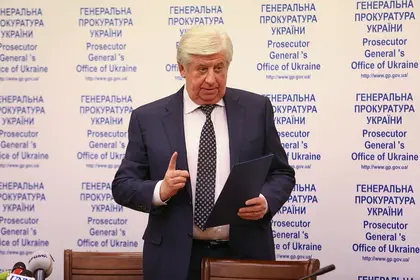“Yes, he resigned,” the source said.
Several Ukrainian media outlets also reported Shokin’s resignation, citing their own sources.
The reports came shortly after Ukrainian President Petro Poroshenko said he’d asked his appointed prosecutor, who has failed to bring a single major criminal case to trial in a year, to leave.
“The prosecutor general, unfortunately, wasn’t able to win the support of society. So now the issue of the resignation of the prosecutor general is on the agenda,” Poroshenko said after the meeting with Shokin. “The same approach should be also applied to the government.”
Shokin’s deputy Yury Sevruk told the Kyiv Post that Shokin had been on vacation since Feb. 15.
Shokin has been under fire for months by his critics, who accused him of stalling reform in the Prosecutor General’s Office, and covering up cases of corruption among his subordinates.
Daria Kaleniuk, the executive director of the Anti-Corruption Action Center, hailed Shokin’s resignation in a post on Facebook on the evening of Feb. 16.
“Shokin resigned. For six months we were working hard in the Anti-corruption Action Center to be able to write these two simple words,” Kaleniuk wrote.
Meanwhile, Prime Minister Arseniy Yatsenyuk is also facing parliament’s dismissal of his government. Lawmakers, after hearing the premier deliver his government’s annual report on Feb. 16, are expected to call for a vote of no-confidence in the government.
Yatsenyuk is likely to lose that vote, as political support for him has been evaporating rapidly in recent days. In the evening of Feb. 15, a day before the possible vote, the Bloc of Petro Poroshenko, the largest faction in the governing coalition in parliament, said it would vote against the premier if a vote of no-confidence were to be held.
Kyiv Post staff writer Oksana Grytsenko contributed reporting to the story.
You can also highlight the text and press Ctrl + Enter




